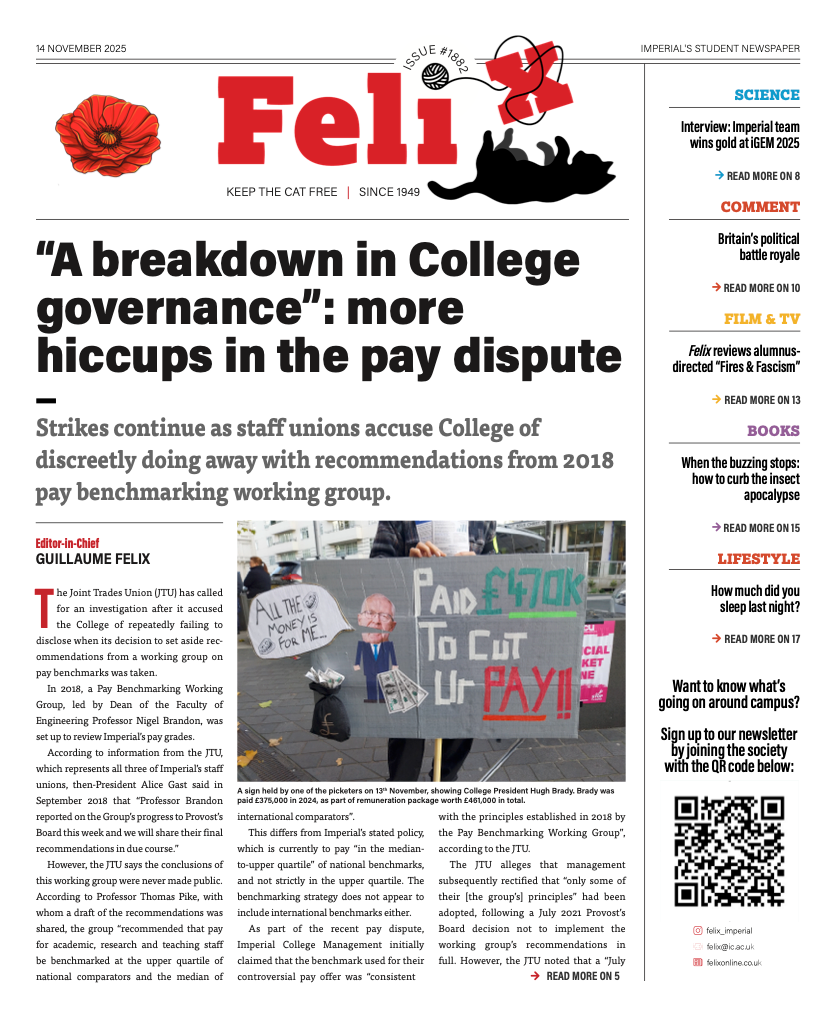We're all failing sleep
University students vs sleep: the eternal struggle.
Before coming to Imperial, I was familiar with stories describing the vibrance of the Abdus Salam library after the clock strikes 12. The reality might not be too far off. “Having a sleep schedule” feels more like an abstract concept than reality, even though the 9 am next morning is more real than the dream we never got to finish. Consistent 8 hours of sleep is a myth - at least I believe so - between the unfinished coursework, upcoming formative quizzes, sports night, societies and more.
Here are some statistics: according to NHS England Digital (2023), data from England show that 64.9% of young people aged 17–23 experienced sleep problems three or more times over the previous week. The rate was even higher among young women: 74.7% compared to 55.7% for young men. Whatever the reason is, the next morning tends to be the bane of existence with groggy brains, short tempers, and the continuous exodus of money flowing out of bank accounts to the library café. I used to blame my laziness and poor planning, but after familiarising myself with the idea of certain gene mutations causing people to need less sleep, I had to acknowledge that genetics play a part. Some of us are wired to be night owls, and university life (stereotyped by late library hours and nights out) almost encourages this. Rather than blaming staying up late, it’s inconsistency that is doing more damage. A day starting at noon is better than waking up every day to a different alarm.
The most convincing evidence of Imperial students being chronically sleep-deprived can be found on the @imperial_sleeps Instagram account. The account posts a collection of photos capturing students napping across campus, even mid-lab. This account, coupled with many other “sleep accounts” appearing at universities worldwide, serves as a strangely comforting reminder that students everywhere are united by exhaustion.
A recent Nature Mental Health (2025) study of U.S. university students found that their sleep schedules feature later bedtimes and shorter sleep during term time compared to holiday times. Inconsistent sleep appears to be woven into university culture itself.
From personal experience, among all my attempts, incremental successes helped the most. Starting with consistent wake-up times, even on weekends (which can be hard for athletes due to late Friday training but give it a go!). Short naps can help, but beware there are risks of a one-hour nap turning into a seven-hour one, so set many alarms. Most importantly, give yourself a time limit after which no studying should be done, whether that’s 8pm or 11pm. The thin line between productivity and exhaustion shouldn’t be crossed unless necessary.
Maybe we don’t need to chase the perfect sleep schedule after all. Finding your own consistent rhythm might just be the challenge to tackle during your uni days.






